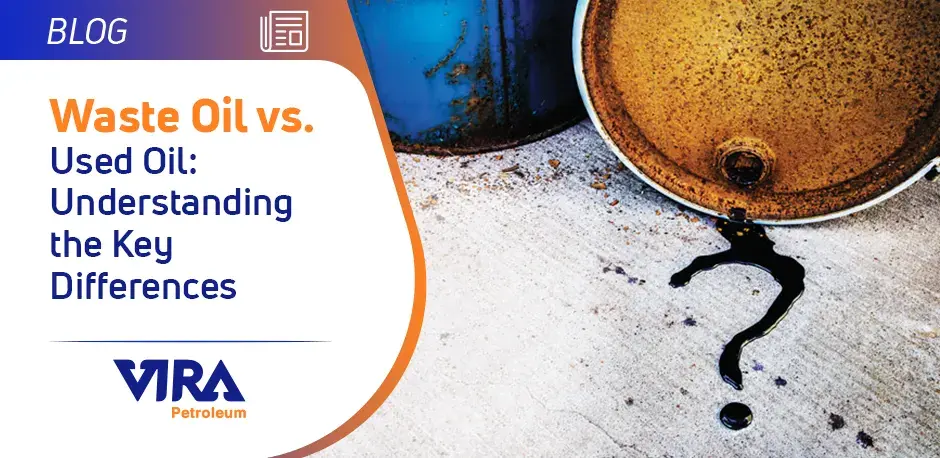In the realm of oil management and disposal, two terms commonly used are “waste oil” and “used oil.” While these terms may seem interchangeable, they have distinct meanings and implications. Understanding the differences between waste oil and used oil is crucial for proper waste management, environmental protection, and regulatory compliance. This article delves into the contrasting characteristics, disposal methods, and environmental impact of waste oil and used oil.
Order : recycled base oil
Definition and Characteristics
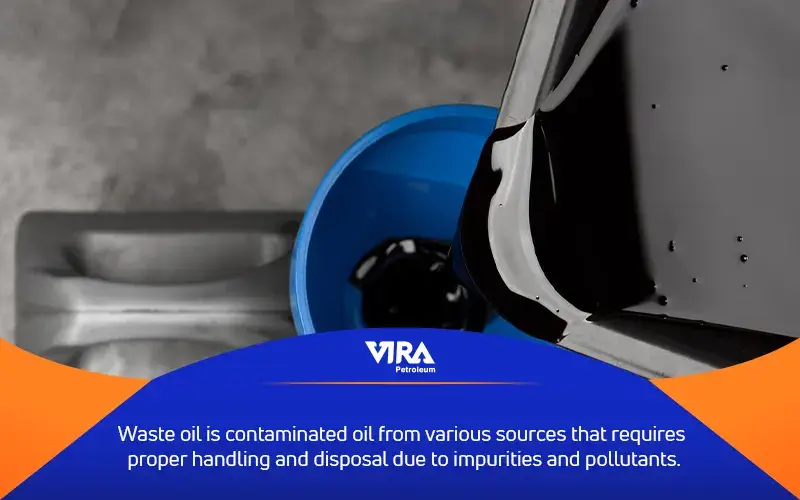
Waste Oil
Waste oil refers to any oil that has been contaminated, degraded, or otherwise rendered unsuitable for its original purpose. It can come from various sources, such as automotive engines, industrial machinery, or cooking applications. Waste oil may contain impurities, additives, or pollutants that require proper handling and disposal.
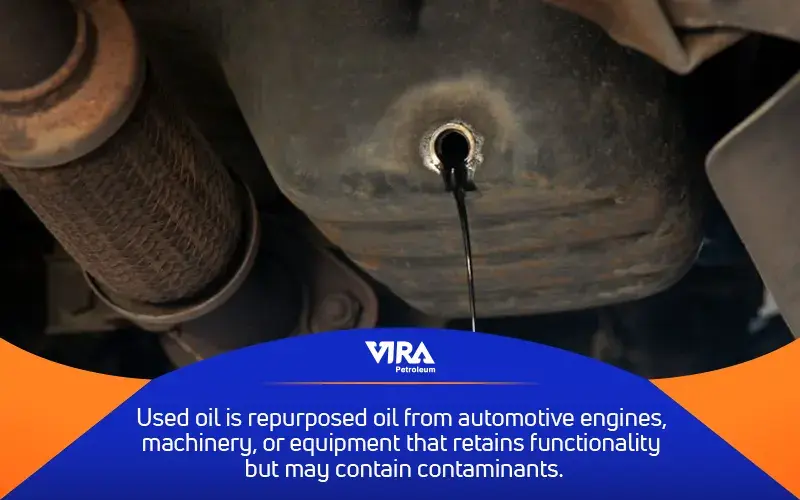
Used Oil
Used oil refers to oil that has been used and removed from its original application but can still serve a specific purpose. It typically comes from automotive engines, machinery, or equipment lubrication. Used oil may still possess its original properties and functionality, although it might contain contaminants or additives.
Read more : How to make diesel fuel from used motor oil?
Disposal Methods
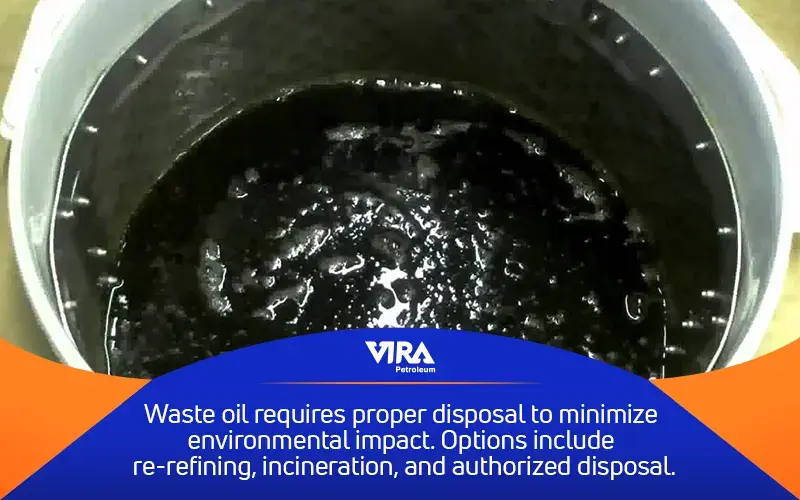
Waste Oil
Due to its contamination or degradation, waste oil cannot be reused or recycled in its original form. It must undergo proper disposal procedures to minimize environmental impact. Common disposal methods for waste oil include re-refining, energy recovery through incineration, and authorized disposal at licensed facilities.
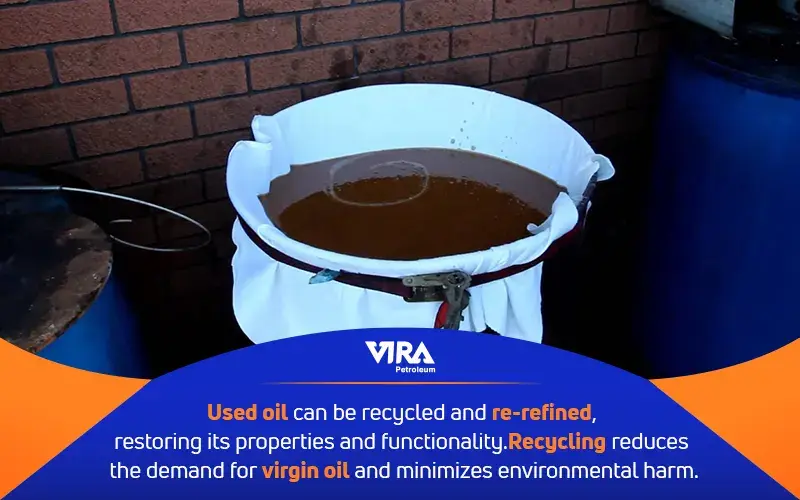
Used Oil
Used oil, on the other hand, can undergo recycling and re-refining processes to restore its properties and functionality. Properly managed used oil can be collected, cleaned, and processed to remove impurities, making it suitable for reuse as base oil or for blending with new oil products. Recycling used oil reduces the demand for virgin oil and minimizes environmental harm.
Environmental Implications
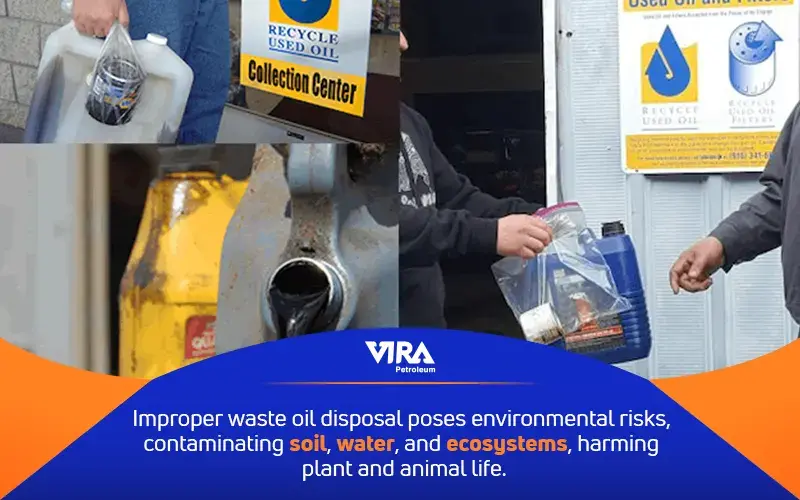
Waste Oil
Improper disposal of waste oil can pose significant environmental risks. If released into the environment, waste oil can contaminate soil, water bodies, and ecosystems, leading to detrimental effects on plant and animal life. It may also contribute to air pollution if incinerated without proper controls.
Read more : Exploring the Various Types of Waste Oil
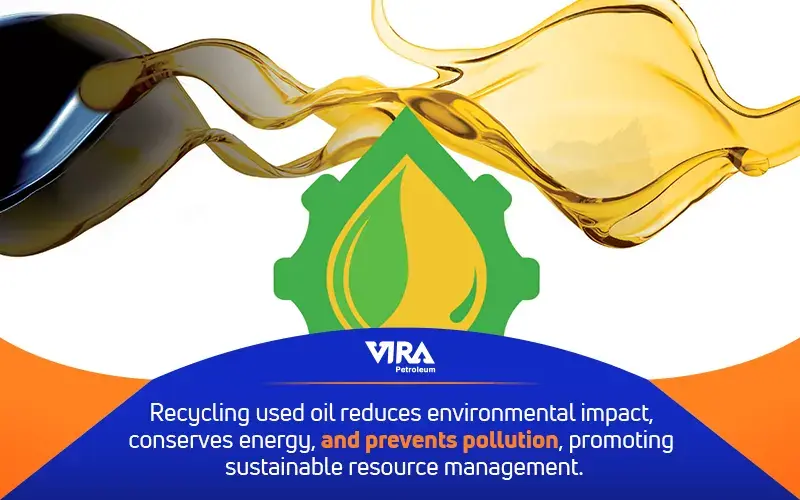
Used Oil
When properly managed and recycled, used oil significantly reduces the environmental impact associated with oil production and disposal. Recycling used oil conserves energy, reduces greenhouse gas emissions, and prevents pollution that would otherwise occur during the production of new oil. It is an environmentally responsible practice that contributes to sustainable resource management.
Importance of Proper Management
Compliance with Regulations
Understanding the distinction between waste oil and used oil is crucial for complying with environmental regulations and waste management guidelines. Different regulations govern the handling, storage, and disposal of waste oil and used oil, and non-compliance can result in legal consequences.
Environmental Stewardship
Proper management of waste oil and used oil is essential for preserving environmental integrity. By following appropriate disposal methods, recycling, and re-refining, businesses and individuals can minimize the negative impact on ecosystems, water resources, and air quality.
Comparison of Waste Oil and Used Oil
| Aspect | Waste Oil | Used Oil |
| Definition | Contaminated or degraded oil that is no longer usable | Oil that has been used and removed from its original application |
| Source | Industrial processes, automotive engines, machinery, etc. | Vehicles, machinery, equipment, and other lubricated systems |
| Contamination | May contain impurities, contaminants, or additives | May contain impurities, contaminants, and wear metals |
| Disposal | Requires proper disposal methods to prevent environmental harm | Should be recycled or re-refined whenever possible to extend its usefulness |
| Environmental Impact | Improper disposal can lead to soil and water pollution | Can release harmful substances if not properly recycled or disposed of |
| Resource Conservation | Does not contribute to resource conservation | Can be recycled and re-refined to reduce the demand for virgin oil production |
| Recycling Potential | Limited potential for recycling and reuse | Can be recycled and re-refined to produce usable oil products |
| Regulatory Compliance | Must comply with local regulations for waste oil management | Must comply with regulations regarding used oil recycling and disposal |
| Environmental Benefits | Proper management reduces environmental pollution and harm | Recycling used oil conserves resources, reduces pollution, and minimizes the need for new oil |
Conclusion
In conclusion, understanding the differences between waste oil and used oil is essential for responsible waste management and environmental protection. Waste oil, contaminated or degraded oil, requires proper disposal to prevent environmental harm. Used oil, while no longer suitable for its original purpose, can still be recycled and re-refined for reuse. By adopting sustainable practices and prioritizing recycling, we can minimize the environmental impact of oil consumption and contribute to a more sustainable future.
Remember, whether you’re dealing with waste oil or used oil, it is crucial to comply with local regulations and seek guidance from environmental authorities or waste management professionals. Together, let’s make conscious choices to protect our environment and promote a sustainable and cleaner future.
Waste oil and used oil are terms often used interchangeably, but they have slight differences. Used oil refers to oil that has been used in various applications such as automotive engines, industrial machinery, or hydraulic systems. Waste oil, on the other hand, is a broader term that includes both used oil and other types of oil that have been contaminated or mixed with other substances, rendering them unsuitable for their original purpose. In essence, all waste oil is used oil, but not all used oil is necessarily waste oil.
Proper disposal of waste oil is crucial to prevent environmental harm. It should never be disposed of in regular trash bins, poured down drains, or released into the environment. Instead, waste oil should be collected and recycled through appropriate channels. Many automotive service centers, recycling facilities, and authorized collection points accept waste oil for recycling. Recycling waste oil helps to recover its energy value and reduces the need for virgin oil extraction.
Yes, used oil can be recycled or re-refined for further use. Re-refining is a process that removes impurities and contaminants from used oil, restoring it to a usable condition. Re-refined oil undergoes a rigorous refining process, similar to the refining of crude oil, to remove contaminants, water, and additives. The resulting oil is of high quality and can be used in various applications, including automotive engines, industrial machinery, and lubrication.
Recycling and managing waste oil and used oil properly offer several environmental benefits. First, recycling used oil reduces the demand for virgin oil production, conserving natural resources and reducing the need for oil extraction, which can have environmental impacts. Proper management also prevents the contamination of soil, water bodies, and groundwater, safeguarding ecosystems and human health. Additionally, recycling waste oil helps to minimize the release of harmful pollutants, such as heavy metals and toxic substances, into the environment, contributing to improved air and water quality.
